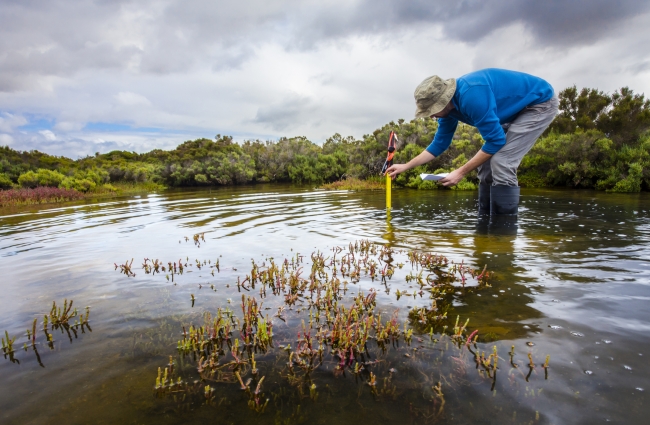You have /5 articles left.
Sign up for a free account or log in.

LGBTQ+ researchers need the support of their institutions and supervisors while out in the field.
Tenedos/iStock/Getty Images Plus
Fieldwork in ecology often takes place in isolated places, which can threaten the safety of people from marginalized groups, including members of the LGBTQ+ community.
In ecology particularly, LGBTQ+ scientists face heightened barriers to academic practice as a result of their sexual orientation or gender identity.
A diverse group of scholars—including those who are nonbinary, trans, lesbian, gay and bisexual—who have experienced life as queer people in rural areas conducting remote fieldwork co-authored a paper on inclusion practices in their work. The lead author is Jaime J. Coon, a professor in both the department of biology and the department of environmental sustainability at Earlham College in Indiana, with colleagues from Earlham and elsewhere collaborating.
Suggestions for institutional fieldwork policies and fieldwork supervisor support to make the experience inclusive toward LGBTQ+ community members include:
- Establishing clear field procedures and safety plans. With detailed descriptions of sites, daily activities and methods, individuals can advocate for accommodations as needed.
- Accommodating for inclusive housing, bathrooms and gear. Institutions can create an equal standard in gender-neutral bathrooms, elective housing placements and a range of size-dependent field gear. Field resources should also provide access to a refrigerator for medications and menstrual products for all parties. Supervisors can support this work by collaborating with research group members.
- Prioritizing safety. To keep LGBTQ+ field researchers safe, institutions should standardize providing walkie-talkies and a letter on university letterhead explaining fieldwork, to decrease risks. Researchers also disavowed solo travel.
- Increasing access to financial resources. Researchers recommend allocating grant funds to support hidden costs (e.g., medication transport or gear) for early-career LGBTQ+ researchers.
- Understanding complications in paperwork. For LGBTQ+ researchers, their name or gender may be different than what’s reported on their legal documents. To overcome this hurdle, institutional systems can allow individuals to self-identify information and assist with legal boundaries in legal paperwork.
- Demonstrating advocacy and support. Supervisors can demonstrate care for researchers by modeling correct language and pronouns, supporting researchers who may be closeted and their identity disclosure choices. LGBTQ+ supervisors can consider disclosing their own identities to provide an additional layer of support and security.
Do you have an academic success tip that might help others encourage student success? Tell us about it.




